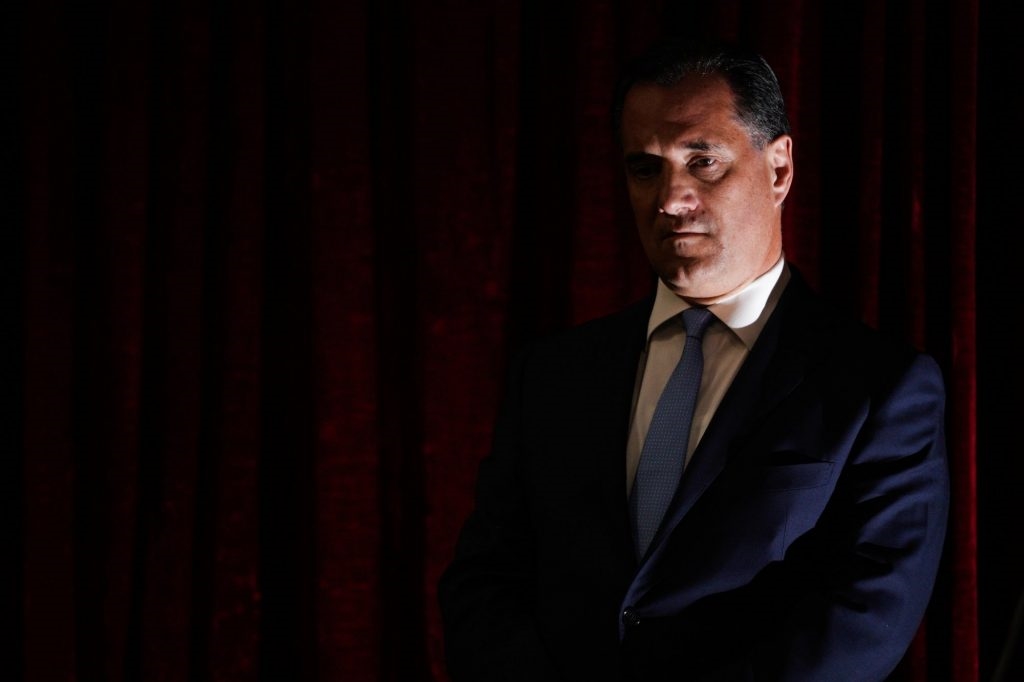The Greek government may have maintained that after a recent decision by the Supreme Court chief prosecutor’s office to “conclude” the wire-tapping scandal – in the wake of an investigation by the high court’s deputy prosecutor, Achilleas Zisis – by shelving the possible liability of political figures in the case along with the use of the illegal spyware Predator, however, this in no way negates the fact that there are serious questions that remain unanswered.
One unanswered question involves the wire-tapping of Cabinet ministers.
This is because we know that not only was there an attempt to plant the illegal spyware on the cell phones of Cabinet ministers, senior government officials, the military’s top brass and high-ranking police officers, we’ve also learned that Greece’s National Intelligence Service (EYP) had sought and received a prosecutor’s approval to tap these phones, essentially lifting users’ right to confidentiality of communications.
This was done in the case of PASOK president Nikos Androulakis as well as against other individuals, such as journalist Thanos Koukakis, following complaints by the latter two, which first brought the case to the limelight, and before a veritable “tsunami” of revelations emerged over the number of ministers, government officials, politicians, journalists and businesspeople that were targeted by the Predator spyware, in tandem with the transactions that the companies trafficking the specific spyware had with the Greek state.

Yet, while the silence of most of the ministers who have been referred to as surveillance targets of the Predator spyware is interpreted as an obvious sign of embarrassment, there’s at least one minister who not only appears as the…champion of attempts (11 in total) to infect his cell phone with the spyware, but who’s repeatedly come out in public to argue that there’s no problem with the practice; that it’s almost normal to have your phone bugged, and that it is the job of intelligence services to monitor everyone, without actually being accountable to anyone, as long as a formal legality is observed. That Cabinet member is Health Minister Adonis Georgiadis.
The latest “blow” by the health minister was a post on his X account on Friday, namely, that after the large number of attempts to tap his phone became known, he essentially maintained that it “was no skin off his nose”.
In essence, it’s shocking when a minister and a government member, who has sworn allegiance to the Constitution, which among others, recognizes, enshrines and protects the privacy of communications, emerges in public and says something to the effect of “it’s no skin off my nose” – both in the case of eavesdropping of a citizen (and, moreover, a journalist), and himself.
Even worse, he declares that it’s more-or-less normal for his own phone to be tapped. In other words, it’s not the end of the world if, for instance, private citizens – including foreign nationals, and even one with service in a foreign country’s intelligence agency – wire-taped the phone of a Greek government minister.
Even more so, one could reasonably argue that wire-tapping the phones of ministers and the leadership of the armed forces constitutes the definition of espionage.
‘No skin off my nose’ minister when confidentiality of communications is violated
He is Georgiadis’ ‘take’ in his X post:
“… my primary position, therefore, from the very beginning is that only a naïve person would be shocked if they were in my position and had my level of publicity, to learn that their phone is being monitored. To be honest, I would be genuinely shocked if I found out that no one had ever surveilled my phone. This has become so commonplace that, wherever you go around the globe, in serious meetings, everyone, from all countries, leaves their mobile phones outside. Not even just turned off, but outside.”
Instead of the minister rushing to say that the government, which – lest we forget – he represents whenever he is in public, will do everything it can to protect telecommunications, to protect the privacy of communications, he says wire-tapping is bad thing, but “trivial”.
“Unfortunately, modern technology facilitates such actions much more compared to the past. Bad? Yes. Criminal? Yes. But absolutely commonplace.”

He considers as “insignificant” or trivial the fact that an attempt was made to tap the phones of half of the Cabinet, government officials, senior military officers and politicians!
He maintains that it’s an “insignificant” fact that an attempt was made to collect sensitive information and personal data. An “insignificant” incident even if this activity aimed at extorting or manipulating politicians and officials.
When the rule of law translates into uncontrolled action by the secret services
At the same time, Adonis Georgiadis considers that there’s no issue with the fact that ministers, military officers and politicians were monitored by EYP citing reasons of “national security”. For him, it’s enough that “due process” is followed, ignoring that there are open questions about whether the spirit of the law was actually followed – and not just the letter of the law entailed with the existence of a prosecutor’s approval – to sufficiently justify the lifting of the confidentiality of communications in these specific cases.
Georgiadis continues:
“And as far as the legal surveillance of Mr. Androulakis by the EYP is concerned, my first statement was: ‘as long as the legal procedures were followed, it does not concern me’, which is the conclusion reached by the Supreme Court in the end, because that’s how things are. One of the jobs of the intelligence service is to monitor phones. The only thing that interests our Democracy here is whether or not the law and procedures have been followed, i.e. whether an abuse of power has occurred. Here it was shown that everything was followed, so there is no issue.”
What’s impressive here is the way in which a government minister bypasses all the political, as well as ethical questions that have arisen – and have not been answered – over the specific “legal” surveillance. Unless Adonis Georgiadis considers that the rule of law in our country translates into the ability of the intelligence service (which is directly subordinate to the Prime Minister) to create a situation reminiscent of the movie “The Lives of Others”, whose object was the surveillance of everything by the East German Stasi. If this is the model for the Greek government, let it at least be stated boldly.




